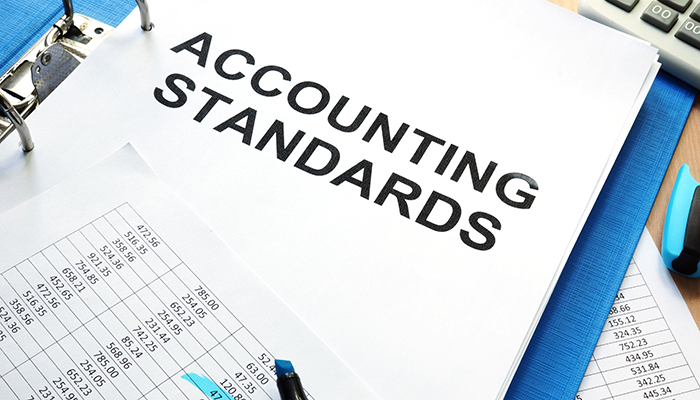In the current global health crisis, governments in virtually all countries are injecting vast amounts of money into their economies. The International Monetary Fund is similarly pumping huge sums to some of its members, and there is an initiative — already achieving success — to forgive the debt of countries struggling to service their debt while fighting the pandemic. In a recent blog the IMF put the cost of interventions to date at $8 trillion, and it is clear there is much more to come.
These resource flows represent huge reallocations of wealth and income, the final result of which is hard to foresee. One thing is certain, however. In the aftermath of the crisis the balance sheets of governments will be horrible. In most cases they were already bad, and significantly weaker than before the financial crisis. The fiscal stress currently being felt by some more indebted countries will be commonplace. It will be seen at all levels of government, not just at the national level.
What will this mean for public financial management as we emerge from the crisis and seek to restart our economies? Most obviously, there will be pressure on government services. It will be difficult for governments to fund the levels of service provision that existed before the crisis, because revenues will have declined with the economic contraction, while demand for many services will have increased. Governments will need to budget differently. They will need to be more flexible in changing their expenditure patterns, and more willing to end services, politically difficult though this is. Prioritisation will need to be far more ruthless than in the past.
Given the state of balance sheets, there will be pressure to generate surpluses in order to rebuild the balance sheet, or at least not incur further large deficits. Costs will need to be better monitored and managed, and economy, as distinct from efficiency and effectiveness, will be a more prominent focus of financial management, at least for a period. At the same time, revenues will need to be re-assessed, and where possible, new revenue sources identified.
None of these things will be easy, and there will be no silver bullets. To prevent “solutions” that later become problems, a distinction will need to be made between truly creative innovations, and those that simply mask and/or defer a problem. Service concessions spring to mind as an example of the latter, as Covid-19 exposes governments to large compensation claims.
“Governments are operating off an information set that is partial, easy to manipulate, and in no way adequately reflects the complexity of the financial operations of a modern government”
But one solution stands out, one that has been in the wings for decades and is only slowly edging to centre stage. It is by no means the only solution that will be needed. It is not, unfortunately, a sexy solution. It's boring, even. It is a technology that enables governments to better manage their revenues, expenses, assets and liabilities. It does this by providing to decision-makers in government a new set of information that more accurately reflects their real fiscal position and performance, and on which they can base their objective-setting, budget decision-making and financial reporting.
This technology is used universally in companies, and has proven so valuable that governments around the world require their companies to use it. Because it is so important, governments have also instituted requirements that the use of this technology be independently checked by auditors, and have then instituted further requirements to check the quality of the work of the auditors.
Because it is designed to accurately reflect economic reality, it is a technology that is easily - in fact intuitively - understood by people in the context of their own, or their family’s, financial position. It tells them when they are getting better off, and when they are getting worse off. It tells them what assets they have, what they owe, and what they are worth.
This technology is not new – it has been around for literally hundreds of years. It is called accrual accounting. Yet it is neither widely nor well used by governments in managing their finances. Instead, governments operate mostly on the basis of cash flows and debt, ignoring assets other than cash, and liabilities other than debt. Put simply, they are operating off an information set that is partial, easy to manipulate, and in no way adequately reflects the complexity of the financial operations of a modern government.
There is no way they would allow a company to operate in the way they do. In the words of Martin Wolf of the Financial Times: “What is not measured does not count. This is dramatically true in discussion of the public sector. A few numbers — the annual financial deficit and the stock of debt — dominate the debate. The result is chronic mismanagement.”
So, the solution is for governments to use accrual accounting as the basis for public financial management and fiscal decision-making. This technology has helped to develop the wealth created by the private sector over many centuries and would have much to offer governments that are seeking to get better control of their finances, as almost all will be doing when we emerge from this crisis.
The adoption of this technology is already underway by some governments, though is far from complete. Luckily, there are some factors which make this transition more manageable.
First, there are many governments that have taken significant steps in this direction, even if only as a way of improving transparency, or how they present the numbers. However, very few have used this technology to actually manage their finances, that is as a tool to produce the information which drives all elements of their financial management systems. For those governments that already produce annual financial reports on an accrual basis, much of the hard work is done. Those governments that report on an accrual basis can provide lessons for those yet to take this step. There are also a few countries that have experience of using accrual information in their budget processes, and again there are lessons from this experience.
Second, we already have a well-established, independently developed set of rules for applying this technology to governments — the International Public Sector Accounting Standards (IPSAS). Use of these standards obviates the need to develop standards country by country, or region by region, which would be a time-consuming, repetitious and ultimately counter-productive process. The more countries that adopt IPSAS, the better are we able to compare the performance and positions of governments around the world.
Third, the use of an accrual accounting system is consistent with the economic framework for fiscal policy-making. The IMF noted, when it changed the framework underpinning its Government Finance Statistics from a cash to an accrual basis, as follows: “The new framework facilitates a more comprehensive assessment of the economic impact of government activity and the sustainability of fiscal policy. Indeed, the use of an accrual accounting system is seen as the final step in the process to implement the framework in the IMF’s Government Finance Statistics Manual (GFSM).”
“The challenges facing public financial management were significant even before the pandemic”
In the IMF blog referenced above, the authors identify some guiding principles in the Covid-19 setting and note: “Governments should reinforce principles of good governance commensurate with the scale of intervention. That should include, for example, accurate accounting; frequent, timely and complete disclosure of information; and the adoption of procedures to allow for ex-post evaluation and accountability.”
Consistent with the GFSM, “accurate accounting” means more than cash and debt — it must include all revenues, expenses, assets and liabilities. If governments currently lack the systems which enable “accurate accounting”, establishing them should be a priority for the post-Covid world, and a priority for the IMF in this new world. There are a variety of ways in which the IMF could encourage the adoption of this technology – they could advocate for the adoption of IPSAS, they could make further support conditional on governments moving to base their financial management systems on accrual numbers, and they could build accrual-based PFM systems into country economic evaluations, to name but three.
web_headquarter1_of_the_international_monetary_fund_washington_dc.jpg

International Monetary Fund headquarters, Washington
Perhaps even more important is that the IMF takes a leadership role in moving the global discussion of fiscal performance and position from simplistic cash flows and debt to a broader conception which recognises all the components of a statement of financial performance, a cash flow statement and a balance sheet, with net worth being the single most comprehensive measure.
This leadership role would be a natural flow-on from the recent work of the IMF’s Fiscal Affairs Department in recognising the role of the public sector balance sheet. This work exemplifies clearly why accrual information will be an important tool for governments in a post-Covid setting. It identifies the potential role of public assets as under-utilised revenue sources, arguing that better asset management could generate revenues equivalent to 3% of GDP. Given the fiscal stress governments will be facing, 3% of GDP will be hard to ignore.
This of course is only one of many ways the new technology will be helpful to governments. It is also a far better basis for cost control of government operations, and enables better management of working capital and cash. In relation to large financial decisions, such as privatisation, or financing decisions, it provides a framework which helps decision-makers see the real impact of decision alternatives, which can be seriously distorted by cash information. Such a framework would be of value even before an accrual-based information system was established and integrated into the budget process.
The challenges facing public financial management were significant even before the pandemic, with acute stresses apparent in developing nations, in some European and Latin-American countries, and in state and local government in the United States. Many other governments had balance sheet positions that had worsened significantly since the financial crisis. These challenges will be much greater when we emerge from lock-down. Governments will need all the tools in their fiscal toolbox, and high-quality financial information is one they cannot afford to ignore.















